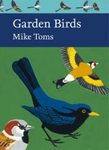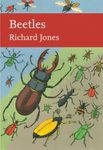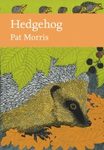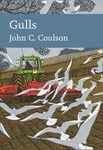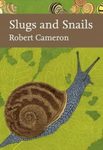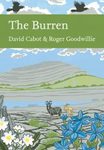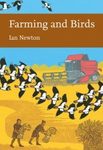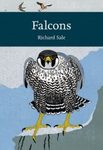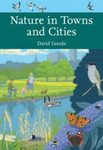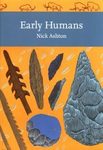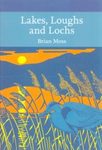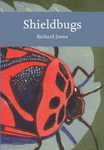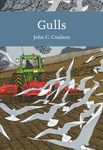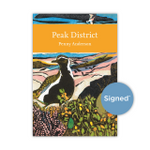![Ecology and Natural History Ecology and Natural History]()
Click to have a closer look
About this book
Contents
Customer reviews
Biography
Related titles
About this book
Read our interview with David M. Wilkinson.
Ecology is the science of ecosystems, of habitats, of our world and its future. In the latest New Naturalist, ecologist David M. Wilkinson explains key ideas of this crucial branch of science, using Britain's ecosystems to illustrate each point.
The science of ecology underlies most of the key issues facing humanity, from the loss of biodiversity to sustainable agriculture, to the effects of climate change and the spread of pandemics. In this accessible and timely addition to the New Naturalist series, ecologist David M. Wilkinson introduces some of the key ideas of this science, using examples from British natural history. Extensively illustrated with photographs of the species and habitats that can be seen in the British countryside, Ecology and Natural History shows how the observations of field naturalists link into our wider understanding of the working of the natural world.
Investigating ecosystems across the British Isles, from the Scottish and Welsh mountains to the woodlands of southern England and the fens of East Anglia, Wilkinson describes the relationships between organisms and their environments. Factors such as climate and chemistry influence populations of every kind of organism, and the interactions between these organisms determine the makeup of ecological communities. Using examples from the full range of organisms on Earth – from bacteria to badgers – Wilkinson introduces the crucial ecological processes that support life, addressing how these ideas can be applied to understand our effect on the environment not just of Britain, but of the whole planet.
Contents
Editors' Preface vii
Author's Foreword and Acknowledgements ix
1. The Entangled Bank 1
2. Cwm Idwal and the Nature of the Environment 17
3. Wytham: Questions about Life in a Deciduous Woodland 39
4. Moor House: Thinking Big While Looking at the Very Small 65
5. Windermere: An Introduction to the Nature of Ecosystems 93
6. Competition on the Isle of Cumbrae 127
7. Cooperation in the Cairngorms 151
8. Can We Explain Selborne's Swifts? 181
9. Succeeding in Wicken Fen 217
10. Wytham Revisited: Exploring the Ecological Niche 245
11. Park Grass and the Hay Meadow Conundrum 273
12. The View from Ringinglow Bog: Britain as a Microcosm of the Planet 297
References 325
Species Index 342
General Index 350
Customer Reviews
Biography
David M. Wilkinson is an ecologist with very wide interest, having published research on organisms ranging from bacteria to sauropod dinosaurs. He was a Reader in environmental science at Liverpool John Moores University, where he taught for almost a quarter of a century. He is now visiting Professor in ecology at the University of Lincoln, and an honorary research fellow in archaeology at the University of Nottingham. His book Fundamental Processes in Ecology: An Earth Systems Approach won the British Ecological Societies book of the year award in 2007.
Monograph
By: David M Wilkinson(Author)
384 pages, colour photos, colour illustrations
"[...] This is the 143rd volume in the New Naturalist series and is the first to focus on ecology. The style is non-technical, with no mathematics and few graphs and tables. Photographs are numerous and mostly taken by the author who is clearly well-acquainted with the chosen sites. For many people, the density and diversity of information won't lend itself to assiduous end-to-end reading. However, it does a good job for the general reader interested in becoming more familiar with basic ecology, but for detail and more systematic treatments, one would need to look elsewhere."
– Rob Fuller, Ibis, May 2022
"[...] A book that anyone, ecologist or not, could read with profit and enjoyment. Highly recommended."
– Ken Thompson, The Niche 52(4), autumn 2021
"This latest New Naturalist is one of the unifying volumes of this venerable series, now in its 76th year and its 143rd volume. Many, if not most, New Naturalists touch on ecology, but none has been devoted to its fundamentals as a science. [...] Scene-setting helps to make ecology accessible to the general reader. Using examples from British natural history, Wilkinson answers such questions as why there are so many species or how species ‘fit’ their environment without overwhelming the available resources. He seems to be on at least nodding terms with every living thing from familiar birds and beasts to cyanobacteria and testate amoeboids (amoebas that live inside shells). Nearly all the photographs were taken by the author; they are of mixed quality but do the job. The text demands concentration. Although it is clearly written, and eschews mathematics, it is dense with concepts and facts, with a strong whiff of university teaching. It is therefore one of the more technical New Naturalists. But where does it say that nature has to be simple? Its complexity is surely part of its fascination."
– Peter Marren, British Wildlife 33(1), October 2021
















